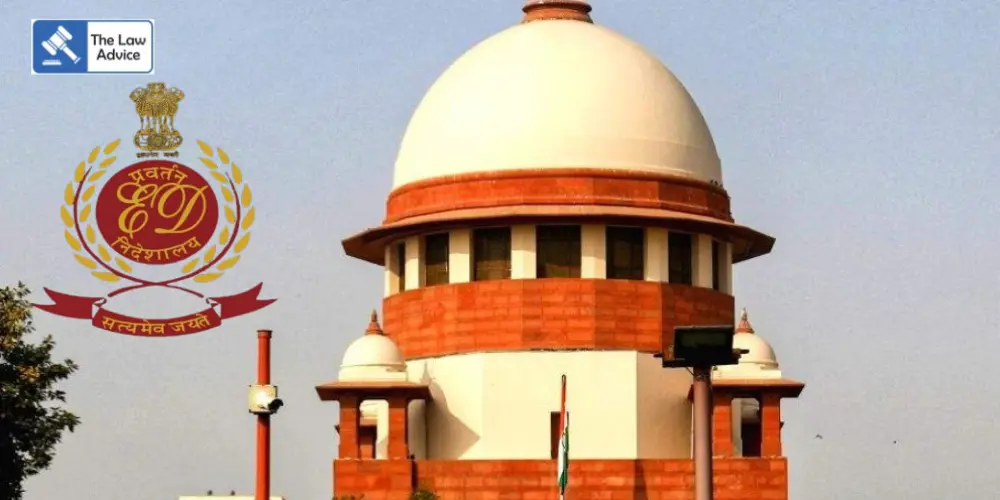
The Supreme Court has lauded the Directorate of Enforcement (ED) for its proactive role in restoring properties attached under the Prevention of Money Laundering Act (PMLA) to protect innocent homebuyers defrauded in a major real estate scam linked to the Royal Rajvilas housing project in Udaipur, Rajasthan.
A Bench of Justice Sanjay Kumar and Justice Alok Aradhe observed that the agency’s initiative ensured justice for investors caught in the financial mismanagement of the corporate debtor.
“We record our appreciation for the efforts made by the Directorate of Enforcement in restoring the attached assets so as to protect the rights of genuine and innocent homebuyers,” the Court remarked.
The case stemmed from the insolvency of the Royal Rajvilas housing project, which is undergoing a Corporate Insolvency Resolution Process (CIRP). During the probe under the PMLA, several flats were provisionally attached by the ED. To secure relief for the affected buyers, the agency agreed to restore the attached properties to M/s Udaipur Entertainment World Pvt. Ltd., the successful resolution applicant under the Insolvency and Bankruptcy Code (IBC).
In its order passed under the second proviso to Section 8(8) of the PMLA, the Court partially set aside the Provisional Attachment Order (PAO) No. 05/2019, directing that the restored assets be handed over to Udaipur Entertainment World Pvt. Ltd., which had taken over the corporate debtor solely to protect homebuyers’ interests. The ED estimated the current market value of these restored properties at approximately ₹175 crore.
However, attachment will continue for 11 specific units in the project — valued at around ₹8.65 crore — which were allegedly purchased using proceeds of crime, as identified in the ED’s additional affidavit dated October 7, 2025. The Court clarified that the restitution was being granted without adjudicating on the merits of the parties’ claims.
Invoking Section 32A of the IBC, the Court directed that the corporate debtor’s name be removed from the list of accused in the third supplementary prosecution complaint filed by the ED in February 2025. It emphasized that criminal proceedings and confiscation actions would continue against the former directors, conspirators, and abettors of the offence.
The Bench further clarified that Section 32A immunity would apply only if the resolution applicant is not connected in any manner with the former promoters or beneficiaries of the laundered funds. Should any such link surface during the ongoing investigation into the Syndicate Bank fraud, the ED will retain the right to challenge the approved resolution plan.
The ruling effectively closed the ED’s challenge to the National Company Law Tribunal (NCLT), Mumbai order approving the resolution plan. The agency was directed to withdraw its pending appeal before the PMLA Appellate Tribunal (FPA-PMLA-3275/JP/2019) and immediately inform authorities to expedite the registration of sale deeds for the restored properties.
The Bench made it clear that these directions were limited to the facts of this case and should not be treated as a precedent. It also disposed of a connected writ petition pending before the Rajasthan High Court (Jaipur Bench).
Concluding the matter, the Court reiterated:
“We place on record our appreciation for the efforts made by the learned counsel for the parties and the Directorate of Enforcement in restoring the attached properties to secure the interests of genuine and innocent homebuyers.”
Case Title: Udaipur Entertainment World Private Ltd. v. Union of India & Others
SLP (C) No. 10734/2025
Website designed, developed and maintained by webexy